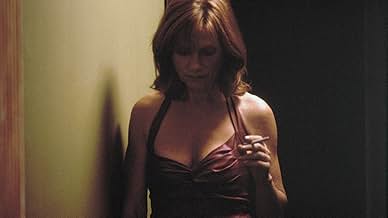Als sein Vater stirbt, wird ein junger Mann von seiner attraktiven, amoralischen Mutter in eine Welt des Hedonismus und der Verderbtheit eingeführt.Als sein Vater stirbt, wird ein junger Mann von seiner attraktiven, amoralischen Mutter in eine Welt des Hedonismus und der Verderbtheit eingeführt.Als sein Vater stirbt, wird ein junger Mann von seiner attraktiven, amoralischen Mutter in eine Welt des Hedonismus und der Verderbtheit eingeführt.
- Auszeichnungen
- 2 Nominierungen insgesamt
- Ian
- (as Théo Hakola)
- Le femme de ménage
- (as Sylvia Johnson)
Handlung
WUSSTEST DU SCHON:
- Zitate
Hélène, the Mother: Your father is dead. I won't lie to you anymore. You must admit that I'm worse than him. I don't deserve your respect. What do you think I've been doing every afternoon all these years? Why were you raised by your grandmother? What did you imagine? Look at me, Pierre! I'm a bitch. A slut. No one respects me. Your father knew. He allowed it. If you really love me, then admit that I'm disgusting. I want you to love me for that. For the shame I inspire in you.
- VerbindungenReferenced in Caché (2005)
- SoundtracksAgnus Dei
Written by Samuel Barber
Performed by New College Choir Oxford (as Choir of New College Oxford)
The group goes to the sunny islands off Spain where Pierre falls in love with the dangerous Hansi and follows her lead in learning about his mother's strange and dangerous proclivities, sexual acts which include the involvement of young Loulou (Jean-Baptiste Montagut), a young man whom they torture for the sake of sexual satisfaction. All the while that Pierre is being introduced into Hélène's bizarre world he is conflicted by his superego in the form of the Catholic Church: he is seen reciting catechism in the desert surrounded by a silent, nude Greek chorus a la Fellini. Ultimately the 'vacation' is over and Pierre returns home with Hélène and the ultimate incestuous aspect of the Oedipus complex plays out in a completely bizarre and very dark way. To say more would destroy the impact of the ending.
Isabelle Huppert is brilliant as always, her quiet outwardly plain demeanor disguising the profoundly ill soul inside. Likewise Louis Garrel makes the fragile, gullible, needy and severely conflicted Pierre understandable: we may not agree with his choices as he wades through the strange waters of perversion, but we never lose sight of his vulnerability and passionate need to be loved. There is a lot of graphic sex in this film, but this particular story could not be told without it. Christophe Honoré manages this strange tale by letting the story take us into the realm of the unreal and he never for a moment loses our interest.
Even the music scoring is substantive, using Samuel Barber's own setting of his famous 'Adagio for Strings' for the choral 'Agnus Dei', most appropriately heard when Pierre is mentally visiting his spiritual conflicts with his corporal deeds. This is clearly not a film for everyone, but for those who admire the French cinema history of uncovering strange tales, this is a fine example. In French with English subtitles. Grady Harp
Top-Auswahl
- How long is Ma mère?Powered by Alexa
Details
- Erscheinungsdatum
- Herkunftsländer
- Offizieller Standort
- Sprachen
- Auch bekannt als
- Ma mère
- Drehorte
- Produktionsfirmen
- Weitere beteiligte Unternehmen bei IMDbPro anzeigen
Box Office
- Bruttoertrag in den USA und Kanada
- 71.616 $
- Eröffnungswochenende in den USA und in Kanada
- 10.334 $
- 15. Mai 2005
- Weltweiter Bruttoertrag
- 1.510.052 $
- Laufzeit1 Stunde 50 Minuten
- Farbe
- Sound-Mix
- Seitenverhältnis
- 1.66 : 1
Zu dieser Seite beitragen


























